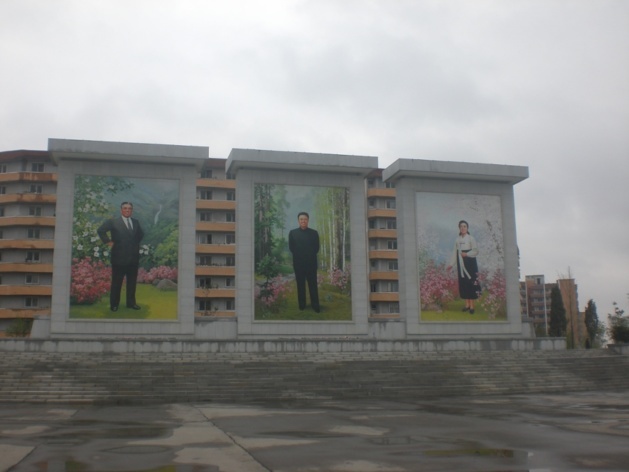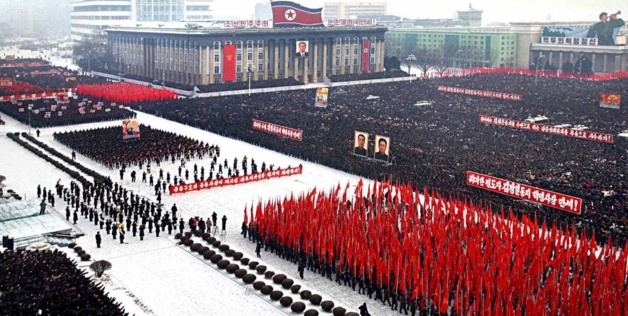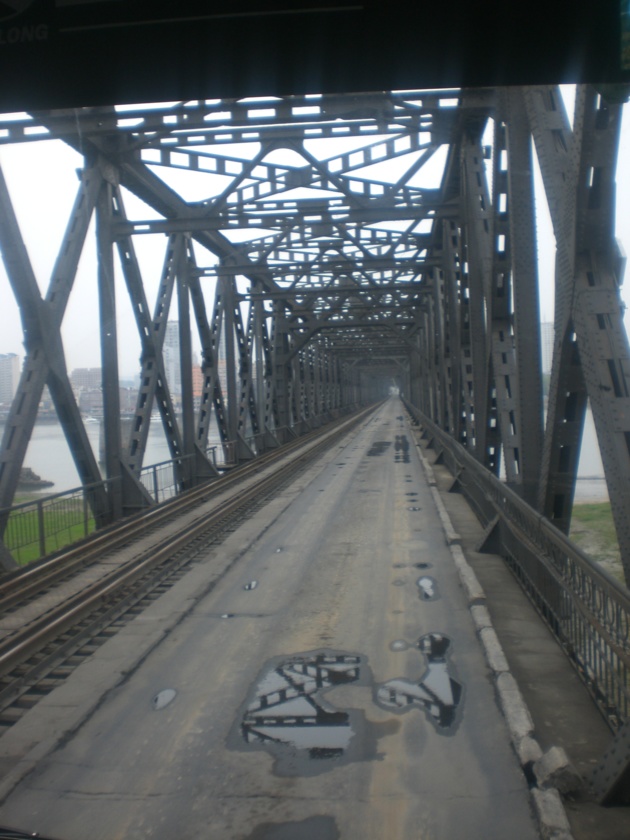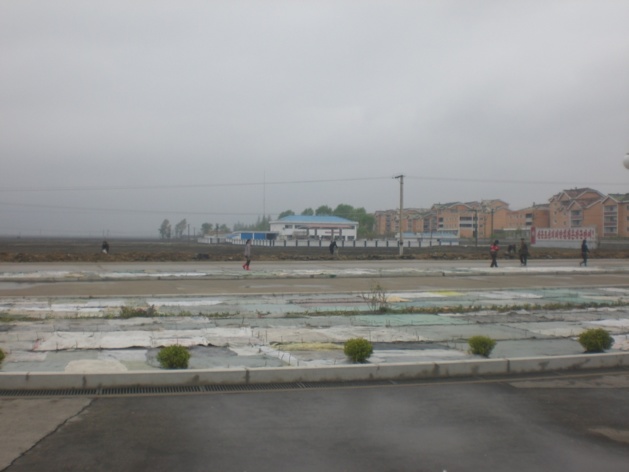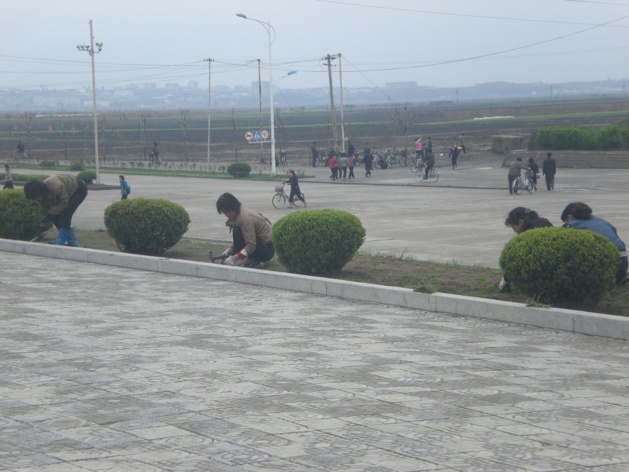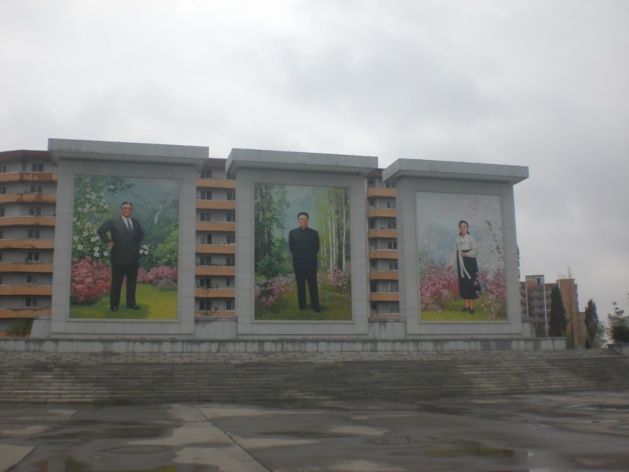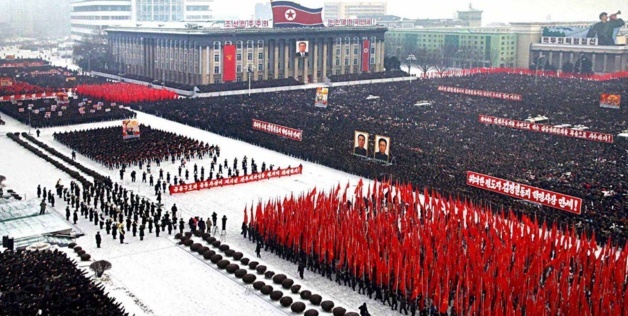
Photo credit : KNS/KCNA/AFP
The raindrops on the window make the picture a bit blurry. It is forbidden to use a camera at the Chinese customs but I still snatch a picture through the bus window. Firstly, the Chinese customs agents have stripped us of our cell phones, laptops, and any objects which could have GPS in it. They have inspected the contents of our cameras. In my passport, there is an authorization to leave China, but no visa. I will never be able to keep an official proof of my brief visit in North Korea. I climb in the bus that crosses the Friendship Bridge, which was destroyed several times by the Americans during the Korean War (1950-1953). Nowadays, it is the symbol of the Sino-North Korean cooperation.
At night, only the Chinese side is illuminated while the North-Korean shores lie in the shadows. From the Bridge, the truth comes out. On one side, brand new buildings. On the other, a muddy shore that reminds me of the Mekong banks, where oxen graze freely. I heard that quite often, some North Koreans jump into the water.
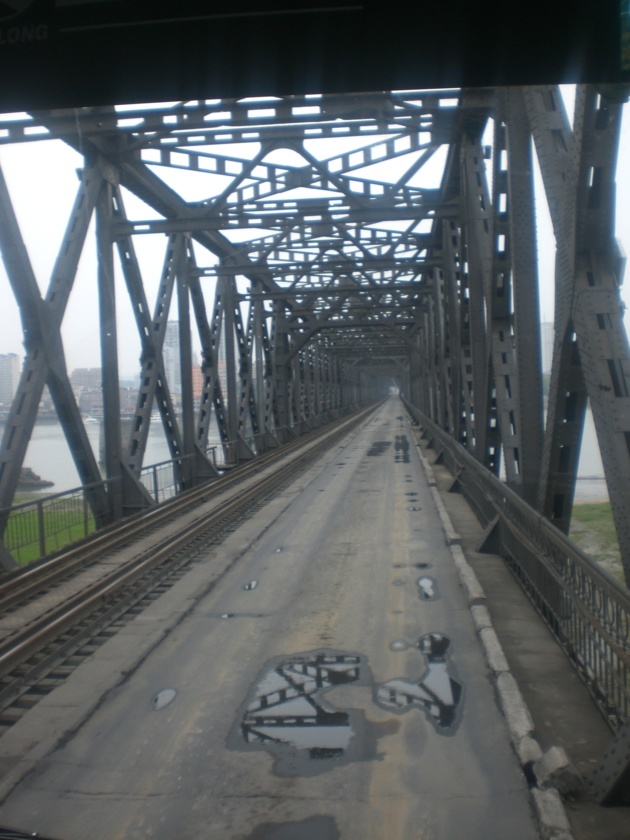
Prohibition of taking pictures from the car
When we get off the bus, we are welcomed by the young and beautiful Pak Un Ha, our guide for the day. She is with her superior, Pak Hun Hak, whose English is nothing compared to hers. Like all North Koreans, he is growing his hair long so that he can get the same haircut as Kim Jung Un. However, this is just a trend, as we have in our capitalist countries. Pak Un Ha, or Miss Ha, is older than me by two years. Her suit, like her hairstyle, is irreproachable. Because she obtained the top place in her exams, she entered the best University in the country, the University of Pyongyang. She thought about enlisting in the army, as most of her comrades at her age, but eventually decided to go back to her hometown, Sinuiju. Now, she is back in her childhood bedroom. She has never crossed the river. No time for that. Not even time to find a boyfriend. But one day, probably.
Miss Ha explains to us that we are not allowed to take pictures during the rides, but only at the designated spots. We are travelling across the city by car. It is a strange mix of low buildings and uncultivated lands. Sinuiju has two hundred thousand inhabitants. Instead of streets, there are roads, wide roads, with no traffic. Only a few military vehicles and high-class cars with tinted glass slowly roam through town. There are North Koreans on the sides of the roads, strolling on foot or by bike, as ‘it is healthier’. Without these scraps of life it would be like a ghost town. The happy colors of the buildings have faded. No activity, no signs, no shops. It is like an old abandoned town. The only thing you can see are party slogans written in red marks on grey billboards every two hundred meters. Once translated, they read, ‘Long live Kim Il Sung’, ‘Thank you Kim Il Sung’, ‘Our country is the best in the world’.
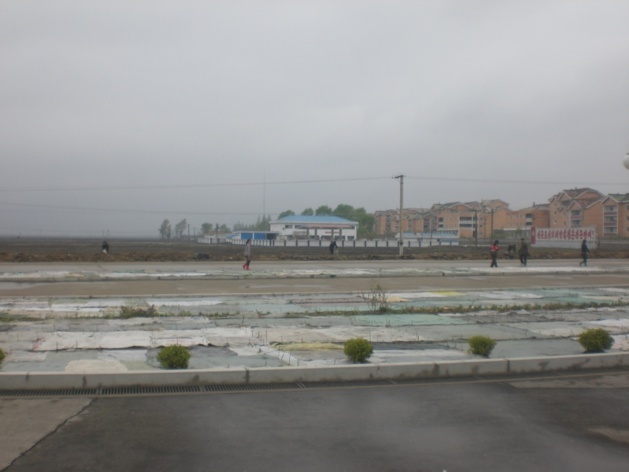
Even though it is Sunday, we can see people, here and there, crouching on the side of the road, tilling pieces of land. With pride, the guide explains to us that the country has discovered a revolutionary plant that only needs to be replanted every five years. Although North Koreans are supposed to get Sundays off, the plantation work has to be done. I am observing them through the window. They look back. They are not smiling at me, nor are they crying. Their expressions are blank. They are wearing simple clothes, with no brands and faded colors. Only small badges that symbolize the faces of the ex ‘eternal leaders’, Kim Il Sung and Kim Jung Il, shine on their chests. They all wear them in plain sight. Miss Ha explains to us that it is required to wear them.
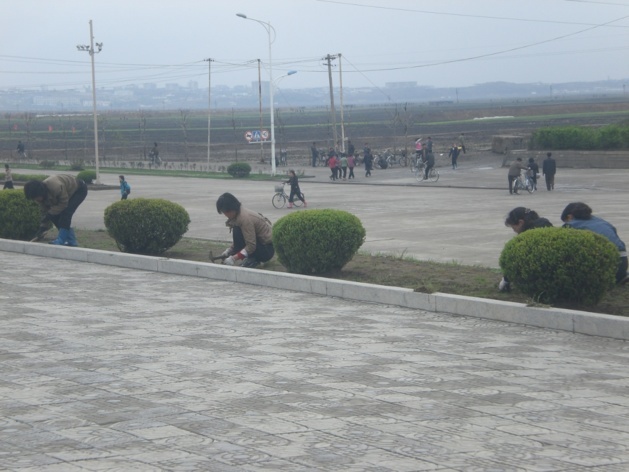
Once we have arrived to the first designated spot, we get off the car to face three massive portraits of Kim Jung Il, Kim Il Sung, and his wife Kim Jong-suk. In front of it, several bunches of flowers are placed on a table. We go to greet the generals and offer them flowers. They cost 20 yuans (3 euros). Passively, they force my hand so that I feel we have to pay. Then, we climb the few steps standing between us and the portraits. Miss Ha says, ‘I am honored that you are making so much effort to greet the generals. This proves how much you respect them’. After her historical rundown, she is surprised that we don’t know the Father of the Nation’s date of birth. Eventually, she tells us in a sweet but firm voice to bend over, as she does, in front of both leaders. We are there, kowtowing in front of the dictators. I have a bitter taste in my mouth. From far away, people are looking at us. What are they thinking about ? That even the foreign devils bend over in front of the strength of their leaders ? Is it true, does their power really shine across the world ?
